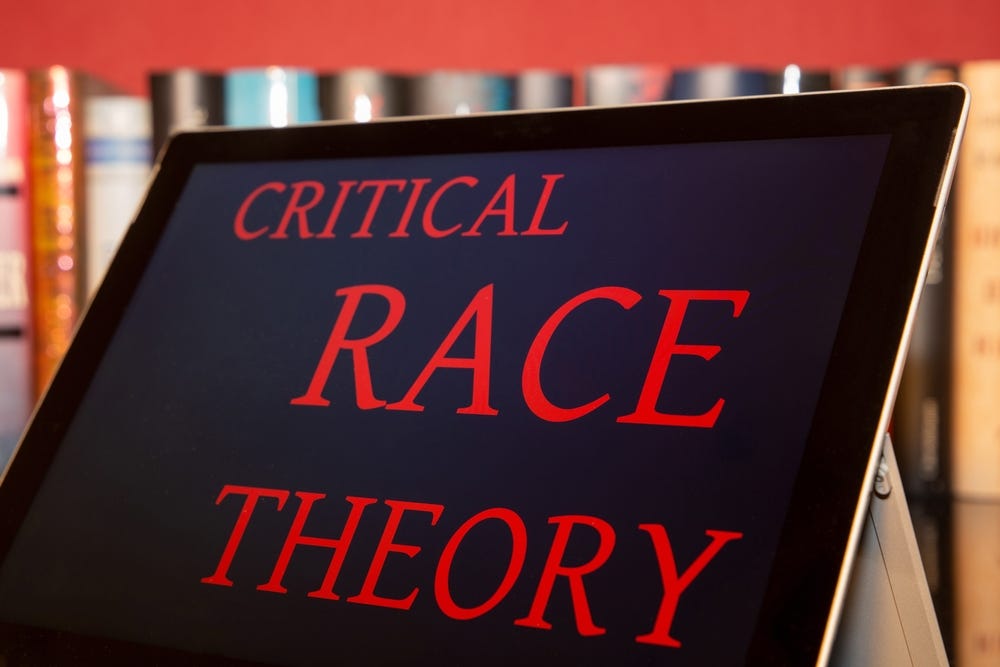E-Pluribus | May 16, 2023
Critical race theory needs better defenders; conservatives should be more careful of whom they admire; and who needs moderate? American does.
A round-up of the latest and best writing and musings on the rise of illiberalism in the public discourse:
Julian Adorney: Critical Race Theory Has a Scholarship Problem
Not only does critical race theory (CRT) suffer from its own deficiencies, Julian Adorney writes at Quillette that CRT’s defenders and proponents are wanting as well. Attacking critics instead of seriously addressing their concerns is not the hallmark of a movement that is confident in its intellectual foundations.
In Critical Race Theory: An Introduction, Richard Delgado (one of the founders of CRT) and Jean Stefancic characterize opposition to CRT this way: “As Thomas Kuhn has shown, paradigms resist change. It should come as no surprise, then, that critical race theory, which seeks to change the reigning paradigm of civil rights thought, has sparked stubborn resistance.” This characterization serves to dismiss their critics; rather than admitting that critics might have ideas worth grappling with, the authors write them off as simply resistant to improving our civil rights.
In a chapter titled “Critiques and Responses to Criticism,” Delgado and Stefancic list only two criticisms of CRT that come from outside the movement. One questions CRT’s univariate analysis, and the other questions CRT’s assumption that minorities cannot succeed in light of the success in America of Jews and Asians. Each of these two criticisms—the sum total of all of the external critiques that Delgado and Stefancic would admit to or grapple with—elicited a paltry one-paragraph response. The first response asserted that the critic in question had performed an “unsympathetic reading” of CRT texts. The second said that CRT wasn’t racist against Jews and Asians (no, really).
Robin DiAngelo, perhaps the best-known Critical Race Theorist (or Crit, as they call themselves) today owing to the blockbuster success of White Fragility, takes this refusal to engage with critics to new lows. In White Fragility, she takes to task “white people who think they are not racist, or are less racist, or are in the ‘choir,’ or already ‘get it’” (that is, white people who disagree with the thesis of her book that we’re all unavoidably racist). These people, she asserts, “cause the most daily damage to people of color.” That is, if you disagree with DiAngelo’s argument, you’re part of the group that (at least according to her) does more daily damage to black Americans than the KKK.
This kind of blatant dismissal of critics might play well on Twitter, but it’s unbecoming for actual scholars.
Read it all here.
Henry Olsen: U.S. conservatives have found an alarming model for their movement
Henry Olsen’s opening line (“American conservatives hungry for victory…”) in his latest Washington Post essay might well have read “Hungary for victory.” Olsen is considerably less than thrilled over the infatuation some on the right have with Hungarian Prime Minister Viktor Orban and writes that whatever conservatives may have in common with Orban is more than outweighed by the differences, both with Orban’s principals as well as America’s differences with the country of Hungary itself.
Part of Orban’s appeal to many conservatives is the disdain that so many global elites have for him. He attracted this reputation largely because of his years-long opposition to mass immigration, even when it comes to refugees, and his slow erosion of an independent mass media. He also has a history of using government funds to support his cronies and push his political objectives. American conservatives have no interest in emulating these troublesome activities, but embracing a man who flaunts democratic norms only hurts the conservative movement — especially in light of Democratic efforts to paint Republicans as antidemocratic following the Jan. 6, 2021, attack on the U.S. Capitol.
[. . .]
American Orbanism would almost certainly fall flat in the United States. The United States is perhaps the world’s most successful multiethnic nation, and American conservatism must embrace that. Instead of ethno-nationalism, the focus should be on opposing de facto open borders. Likewise, Orban’s natalism will not resonate in a country where women are already well-integrated into the workforce and increasingly earning more college degrees than men. Instead of promoting childbearing, conservatives should focus on promoting families.
America’s huge standing in the world also precludes Orban’s neo-isolationist foreign policy. Hungary spends less of its gross domestic product on national defense than even Germany, which conservatives often deride for its anemic military. Orban can afford to pander to Russian President Vladimir Putin, secure in the knowledge that NATO and the United States will protect Hungary’s sovereignty. But the United States cannot take such a blinkered view.
Read the whole thing.
Joseph Romance: Why America Needs Moderates
For years, those on opposites sides of the political spectrum have used “moderate” as something of a pejorative, suggesting those in the middle of the road simply get run over in both directions. At Discourse Magazine, however, Joseph Romance argues that moderates are indispensable in our political system, helping to bring down the temperature and smooth out the rough edges of both the left and right.
We should: Democracy needs moderates. Moderates are not only important for the role they play in deciding close elections, but because their positions are useful and virtuous. “Moderate” is not some constantly shifting position between two more extreme and authentic positions: Rather, it sees a distinction between politics as a religion—as a salvation—and politics as a way to accommodate a diversity of opinion that still recognizes the greater good of the community. At its heart, moderation is absolutely necessary for a republican democracy—and essential to maintaining a viable constitutional order in America.
[. . .]
They’re opposed to extremism. For one, they are against “extremism”—the belief that the political world must be transformed in a complete and new way. These days, rhetoric coming from America’s far left and far right is united in one way: Both sides maintain that the current situation is simply intolerably wrong, and a new order must be imposed. The left is pushing an expanded role for the state in healthcare and wealth redistribution, as well as an embrace of new ideas regarding gender and personal identity. On the right, these efforts are causing a tremendous panic, with severe reactions to even a hint of reform.
Their humility exceeds their certainty. To the far right and far left, the “new world” they seek is not just better in some material ways—it is more just, fair and moral. To create a just and moral world does not allow for compromise. Those on the political extremes are certain that pursuing that world is absolutely the correct approach: They possess an almost religious belief in that radically new world that is waiting to be born.
Read it all.
Around Twitter
Psychology professor J. Michael Bailey at Northwestern University (writing at Unherd) has found himself and his paper on gender dysphoria under fire for lack of “ethical conduct” as well as “sensitivity and controversy” over the subject matter. Leor Sapir and the Foundation Against Intolerance & Racism (FAIR) weigh in as well:
Here’s David French with a couple of observations about the rule of law and the subway killing of Jordan Neely:
And finally, via Peter Boghossian, Google’s experimental artificial intelligence chatbot Bard may not know everything yet, but it knows how to try to weasel its way out of an awkward question:












